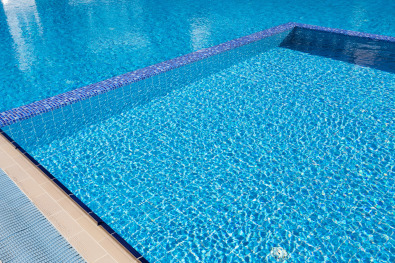I have a leak in my pool liner. How do I find it?
April 15/2024
Finding a leak in a pool liner can be a bit of a process, but here are some steps you can follow to locate the source of the leak:
Visual Inspection: Begin by conducting a visual inspection of the pool liner. Look for any obvious signs of damage, such as tears, punctures, or holes. Check the seams and corners of the liner carefully.
Water Loss Observation: If you suspect a leak but are unsure of its location, you can perform a simple water loss observation. Fill a bucket with water and place it on the pool steps or bench, making sure it is submerged to the same water level as the pool. Mark the water level on both the bucket and the pool. After 24 hours, compare the water loss in the bucket to the water loss in the pool. If the pool loses more water, it indicates a leak.

Dye Test: To pinpoint the exact location of the leak, you can conduct a dye test. Turn off the pool equipment and allow the water to become calm. Select a dye that is specifically designed for detecting leaks in pools. Squirt or place the dye near areas of suspicion, such as seams, corners, or visible damage. Observe the dye closely; if it gets sucked into a hole or tear, it indicates a leak at that spot.
Bucket Test: Another method is to perform a bucket test. Fill a bucket with water and place it on the first or second step of your pool. Mark the water level on the inside and outside of the bucket. Run the pool pump for 24 hours without adding water. Afterward, compare the water loss inside the bucket with the water loss in the pool. If the water level drops significantly more in the pool, there is likely a leak.
Pressure Testing: If previous methods haven't revealed the leak, you can perform a pressure test. Rent or purchase a pool liner leak detection kit, which typically includes a rubber expansion plug, a threaded plug, and a pressure gauge. Follow the instructions provided with the kit to pressurize the pool plumbing lines and identify any drop in pressure, which could indicate a leak.
Professional Assistance: If you're unable to locate the leak or if you prefer professional help, consider contacting a pool leak detection specialist. They have specialized equipment, such as electronic listening devices and thermal imaging cameras, to detect and locate leaks more accurately.
Remember, safety is essential during pool maintenance. Follow all safety guidelines and consult with professionals when necessary.
Comments
No Comments at this time!
Go to top of page